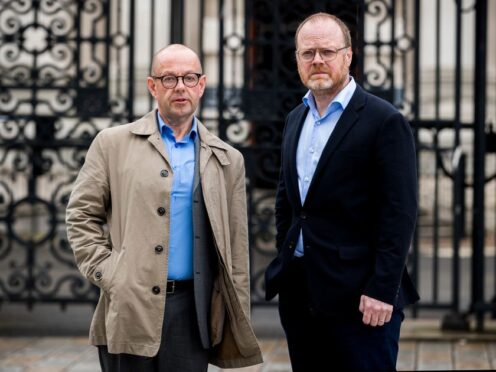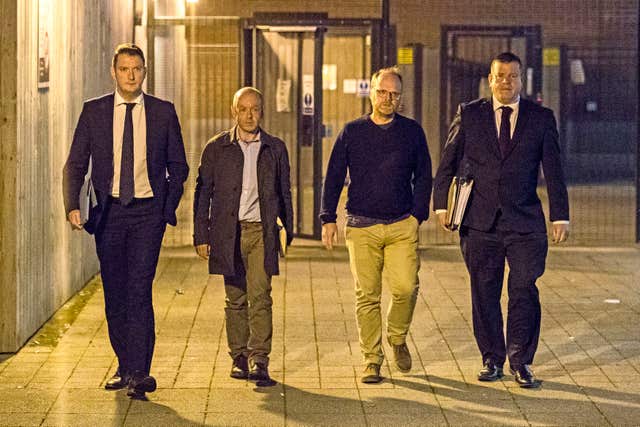
A tribunal of senior legal figures will examine allegations that two investigative journalists were subject to covert surveillance by UK authorities.
The Investigatory Powers Tribunal is hearing a case brought by Northern Ireland based film makers Barry McCaffrey and Trevor Birney.
In 2018, Mr McCaffrey and Mr Birney rose to public prominence after they were controversially arrested as part of a police investigation into the alleged leaking of a confidential document that appeared in a documentary the men made on a Troubles massacre.
The Police Service of Northern Ireland (PSNI), citing a conflict of interest, asked Durham Police to lead the investigation into the inclusion of the Police Ombudsman for Northern Ireland document in the No Stone Unturned film on the 1994 UVF massacre in Loughinisland, Co Down.

Former PSNI chief constable Simon Byrne later unreservedly apologised for how the men had been treated and the PSNI agreed to pay £875,000 in damages to the journalists and the film company behind the documentary.
The 2020 settlement came after a court ruled that the warrants used by police to search the journalists’ homes and Fine Point Films had been “inappropriate”.
In 2019, Mr Birney and Mr McCaffrey lodged a complaint with the Investigatory Powers Tribunal asking it to establish whether there had been any unlawful surveillance of them.
The respondents in the case are the PSNI, Durham Police, MI5, the Security Service Government Communications Headquarters (GCHQ) and several Government ministers.
In a two-day hearing at the Royal Courts of Justice in London, the tribunal will also probe a separate issue, predating the documentary, that involves claims police officers unlawfully accessed the phone records of Mr McCaffrey.
Mr McCaffrey had been investigating alleged police corruption around the time his data was said to have been accessed by the PSNI in 2013.
Lord Justice Singh, Lady Carmichael and senior barrister Stephen Shaw KC will sit on the tribunal during the hearing.

Enjoy the convenience of having The Sunday Post delivered as a digital ePaper straight to your smartphone, tablet or computer.
Subscribe for only £5.49 a month and enjoy all the benefits of the printed paper as a digital replica.
Subscribe